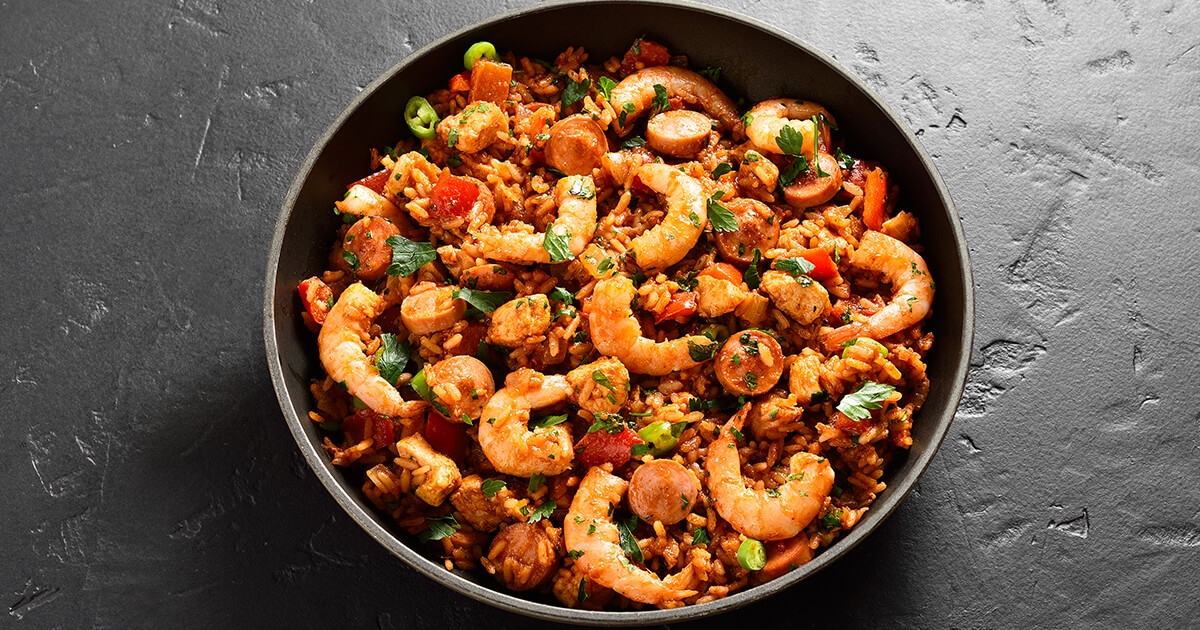You can’t argue with the fact that chicken and shrimp are both very good for you. Eating either of these meats will be very good for you, but there are some big differences between them. Chicken and shrimp have different tastes, textures, cooking methods, costs, and nutrients. This post will explore the main differences, the nutritional value, and which one wins the health battle. Read on for more information on chicken versus shrimp!.
As a nutritionist, I’m often asked which foods are easiest on digestion. Two proteins that come up frequently are shrimp and chicken. People want to know—is shrimp actually easier to digest than chicken?
It’s a great question, and the answer is not completely straightforward The digestibility of any food depends on multiple factors. But generally speaking, there are some key reasons why shrimp may be easier on digestion than chicken for most people
Key Differences Between Shrimp and Chicken Digestion
There are a few main factors that contribute to shrimp being simpler for your body to break down and absorb than chicken:
-
Fat Content Shrimp is very low in fat, while chicken can have significantly more fatty tissue and skin. Dietary fat takes longer for your stomach and intestines to digest.
-
Protein Structure Shrimp protein contains less connective tissue than chicken and other meats, The more simple structure allows shrimp to break down faster
-
Cooking Method: Fried and heavily sauced chicken is harder to digest than baked, grilled or poached. Lightly cooked shrimp is gentle on the stomach.
-
Weight and Volume: Shrimp is lighter than an equal serving of chicken, putting less burden on the digestive organs.
So in general, the leanness, protein characteristics, and cooking style of shrimp give it an advantage over chicken when it comes to ease of digestion.
How Your Body Digests Shrimp Versus Chicken
To understand why shrimp digests more easily for many people, let’s take a look at how your digestive system handles these two proteins:
Shrimp Digestion
When you eat shrimp, the protein it contains begins to break down in your stomach through the action of hydrochloric acid and digestive enzymes like pepsin. Shrimp protein has less tough connective tissue than meats, so it can break down more rapidly.
The chyme of partially digested shrimp then moves to the small intestine, where further enzymes continue to break it down into amino acids and small peptides that your body can absorb. This happens more quickly than with fried chicken protein and fattier cuts.
Chicken Digestion
Chicken follows a similar initial breakdown process in the stomach. But the connective tissues and proteins in chicken take longer to break down compared to shrimp.
In the small intestine, the digestive enzymes have to work harder to further break down the chicken proteins into absorbable amino acids. The fat content also slows digestion.
Fried or fatty chicken sits in the stomach longer and takes more time to digest than lighter shrimp. Spices and sauces can also make chicken harder to digest for sensitive individuals.
Tips for Easy Digestion of Shrimp and Chicken
Here are some tips to make both shrimp and chicken more easily digested:
-
Remove the skin and visible fat from chicken before cooking to reduce the fat content.
-
Bake, grill, roast or poach chicken instead of frying to make it easier on digestion.
-
Opt for plain cooked shrimp instead of heavily breaded or fried shrimp dishes.
-
Don’t overload your plate with chicken or shrimp at one meal—moderation is key for easy digestion.
-
Chew your food thoroughly to jumpstart the digestive process.
-
Avoid eating large amounts of fat, protein or fiber right before bedtime when your digestion slows down.
Other Factors Impacting Digestion
Some other factors beyond just the food itself impact how easily your body can break down and digest shrimp versus chicken:
-
Individual Digestive Issues: Conditions like acid reflux, IBS, or food sensitivities affect personal capacity to digest certain foods.
-
Preparation Method: Frying, breading, sauces, spices or other added ingredients make both shrimp and chicken harder to digest.
-
Quantity Consumed: Overeating shrimp or chicken can overburden digestion, especially right before bed.
-
Overall Diet: Eating a high-fiber diet with vegetables makes digesting meats easier compared to a low-fiber, processed food diet.
So while shrimp is generally easier to digest than chicken, individual sensitivities, serving methods, and dietary patterns also play a role. Understanding how your body reacts can help you make the best choices.
Supporting Healthy Digestion
To aid healthy digestion of proteins like shrimp and chicken:
- Choose leaner, lower fat preparations
- Incorporate vegetables, fruits and whole grains
- Stay hydrated with water and herbal tea
- Limit fried and heavily processed foods
- Exercise moderately after eating
- Manage stress through yoga, meditation, etc.
Focusing on an overall balanced diet and lifestyle helps ensure you properly digest and absorb nutrients from your food.
Is Shrimp Ultimately Easier to Digest Than Chicken?
However, the ways in which both foods are prepared and your individual digestive health also impact their digestibility. Those with dietary restrictions need to pay close attention to how their body responds.
In general, enjoying shrimp and chicken in moderation as part of a high-fiber diet is a healthy approach. Taking steps to cook them in more digestible ways also helps. Paying attention to your own digestive signals and tolerances lets you determine which protein sources your body handles best.
Healthy and Easy Ways to Eat Shrimp and Chicken
Here are some of my favorite simple recipes that make shrimp and chicken easy on your stomach:
Shrimp Recipes
- Poached shrimp cocktail with lemon
- Shrimp salad stuffed in avocado halves
- Quick garlic butter shrimp with whole wheat pasta
- Blackened shrimp tacos with pineapple salsa
Chicken Recipes
- Lemon chicken soup with carrots and rice
- Baked chicken with roasted vegetables
- Greek chicken lettuce wraps
- Chicken and black bean enchilada casserole
Experiment to see which preparations your body best tolerates and enjoy a variety of healthy recipes. Eating nutritious foods in moderation is key for healthy digestion!

Chicken vs. Shrimp: What Are the Differences?
There are more differences between these two tasty, protein-rich types of meat than just the fact that one is chicken and the other is a crustacean. The first difference between chicken and shrimp is the taste and texture. Both chicken and shrimp come from the meat of an animal, or in shrimps case, a crustacean. Sometimes meat doesn’t taste very good, which is one reason why so many people try different spices and sauces. The texture of a chicken is chewier and firmer than shrimp. Shrimp is also firm; however, easier to chew than chicken. Shrimp also is sweeter than chicken. Therefore, whether you like eating shrimp or chicken honestly depends on your taste buds.
Another difference between shrimp and chicken is the cost of the two. At the grocery store, you will be met with various chicken options, legs, drums, breasts, and more. However, on average, chicken costs around $1. 83 per pound. Shrimp, on the other hand, is the more expensive of the two options. The price will change based on the store, the type of shrimp you buy, and whether it is fresh or frozen. On average, shrimp costs anywhere between six dollars to $31. Therefore, chicken is the best choice if you want a cost-effective protein.
Another difference between shrimp and chicken is the cooking methods between the two. These two types of meat are very high in protein, and there are many ways to cook them. Some of these ways are:
These are just some fantastic ways to enjoy chicken and shrimp. When it comes to cooking methods, there are some similarities. They are both versatile and can be cooked in a variety of ways. The time it takes to cook shrimp and chicken will vary, though. Shrimp takes less time to cook than chicken. It makes an effortless and quick dinner if you are in a pinch. Chicken can take up to 20-30 minutes before the meal, depending on your recipe.

Can You Substitute Chicken for Shrimp?
Are you trying to decide whether to eat chicken or shrimp? The truth is that both are very good for you and it can be hard to choose between them. But shrimp has fewer calories than chicken. Both are very good for you, though. Can you use one instead of the other? The short answer is yes. It all depends on your personal preference. However, many recipes let you switch out chicken for shrimp or shrimp for chicken; you would just need to change the cooking time. Another added benefit is that these meats are delicious with varied sauces and seasonings. So, if you need to, you can use the same sauce! For example, shrimp can easily and deliciously replace chicken in chicken alfredo with little work.
FOOD DIGESTION TIME Comparison : How Long Does it Take to Digest These Foods?
FAQ
Is shrimp easy on the digestive system?
Which is healthier, shrimp or chicken?
What is the easiest food for your body to digest?
Is shrimp better than chicken?
However, shrimp is slightly lower in fat than chicken. Shrimp has 0.5 g of fat per 100 g, while chicken has 2.6 g. This means that chicken has +2.1 g of fat. Since they are lean protein options, they are also low in saturated fats.
Is shrimp healthy to eat?
Shrimp is very healthy to eat, unless you have an allergy to shellfish. Shrimp is great because it is a low calorie, high protein food that is relatively inexpensive. Shrimp is also very versatile, so there are many recipes out there, meaning that you can eat shrimp multiple times a week each time in a different way. Don’t make shrimp your only protein source, because a healthy diet is also a varied diet.
Is chicken better than shrimp for muscle gain?
Chicken is a better option for muscle gain than shrimp since it has more calories (+35 kcal) and protein (+2.4 g). To gain muscle, you need to be in a caloric surplus and have a good protein intake since protein is the building block for muscle mass.
Does chicken have more protein than shrimp?
Chicken has more protein (+2.4 g) compared to shrimp. Protein plays an essential role in the body. It helps support muscle mass, increases fullness levels, and slightly increases metabolism . Even though chicken has slightly more protein than shrimp, both are excellent protein options.
